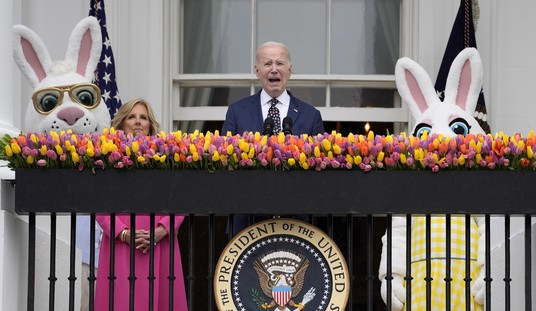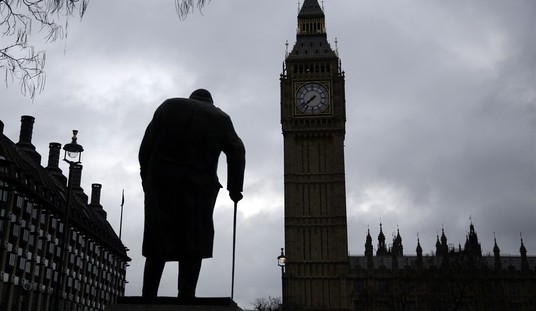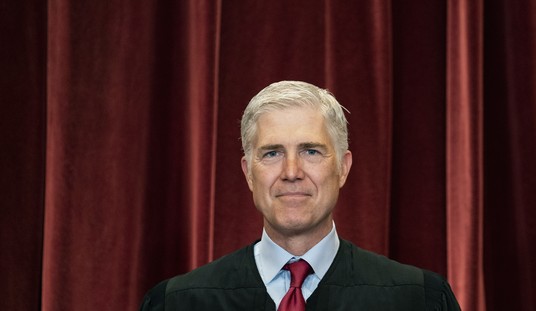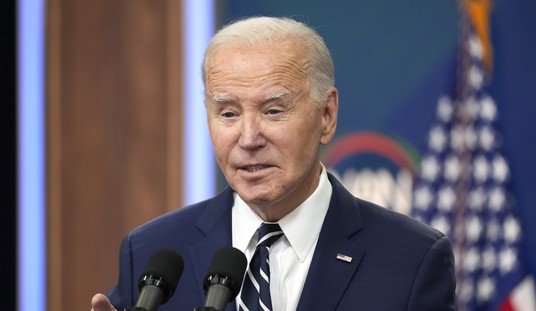Last week’s article: Beating Back the Nazi “Sickness”
Zombies are all the rage these days. AMC’s The Walking Dead reigns as the top-watched drama on basic cable. Films like Warm Bodies, Zombieland, and I Am Legend stand out among recent entries in an enduring horror subgenre. None other than Brad Pitt will headline this year’s World War Z, which looks to amp up its action well beyond the shuffling flesh-eaters of yesteryear.
That’s to say nothing of video games, where the undead continue to suck cash from willing gamers anxious to live out an apocalyptic fantasy. Whether its Resident Evil, Left 4 Dead, or downloadable add-ons to Call of Duty, zombie hoards batter down the doors of our collective consciousness. What exactly makes them so popular?
Like the Nazis we considered last week, zombies provide guilt-free slaughter. No one feels bad about shooting something that’s already dead. Plus, because zombies were once living human beings, they provide a cathartic release for that deeply suppressed homicidal impulse none of us wants to admit to harboring.
Zombies are amoral. They have no agenda, no emotional motivation, no plan. They simply menace. So putting them down presents no moral dilemma. What would be murder were they living becomes a wholly defensible act of survival. The very nature of a zombie marks it for destruction. Since it has no feelings and endures no torment, the acceptable methods for disposing of a zombie are bound only by the imagination of the killer. So zombies enable creative guilt-free violence on a scale limited only by their numbers.
Zombies also serve an adaptive narrative purpose in storytelling. While they more often than not simply lurk around the corner as boogeymen, the nature of a zombie can be tweaked to represent certain themes. In George Romero’s 1968 classic Night of the Living Dead, the film which birthed the modern undead flesh-eater, zombies were implied to be the fulfillment of biblical revelation. Writing for the Washington Post, commentator Christopher Moreman expounds:
The zombie apocalypse is often equated with the wrath of God and biblical end times. Though the origins of zombie outbreaks usually remain indeterminate in the genre, most zombie narratives indicate that we brought this upon ourselves. Whether corporations, the government, or the military are to blame, the average person also bears fault for participating in a corrupt system, just as the people of Sodom and Gomorrah were collectively responsible for God’s wrath.
Romero’s 1978 Dawn of the Dead took the theme a step further, assigning a decisively anti-capitalist overtone to the narrative. The undead converged upon a shopping mall, retracing the routines of their former lives.
While more recent zombie tales have treated the menace as a medical epidemic, as seen in 28 Days Later and hinted at in The Walking Dead, a critique of consumer culture seems to dominate the genre. Survivors must learn to live without the comforts of the modern world, to survive on the edge, to endure what some might be inclined to describe as a more sustainable existence. Concluding his analysis, Moreman appears to endorse this interpretation of our zombie fascination.
The 1960s’ counter-culture and civil rights movements reacted against authority structures-the government, the military, the church-that were perceived to have lost their legitimacy. Since then, the zombie as a mindless thrall driven by the single-minded pursuit of devouring serves as a warning against rampant consumerism and the insatiable appetite of dog-eat-dog capitalist greed. Faith in authority structures has eroded further since the 1960s, as attested by lower voter turnouts, decreasing affiliation with traditional religions, and the recent Occupy movement.
The popularity of the zombie stems from our similarity to that pitiable creature deprived of its soul, forced to labor for the benefit of unknown masters. Yet, what might also persist is the recognition that this state can be overcome with the individual agency and moral responsibility of the masses, the demos at the heart of true democracy.
Certainly Romero became more explicit with this theme by time he directed Land of the Dead in 2005. Dennis Hopper plays a pitiless land baron squatting in a palatial high-rise along with others among the super-rich, surviving on tributes from bounty found during death-defying excursions into the surrounding wasteland by working-class heroes.
Art often serves as a prism revealing different aspects of humanity depending upon how it is observed. While Moreman and Romero see in the zombie “a pitiable creature deprived of its soul” and “a warning against rampant consumerism and the insatiable appetite of dog-eat-dog capitalist greed,” another way to interpret zombies presents a far more optimistic view.
While the undead may lack a soul, the missing element of greatest consequence to living human survivors proves to be a mind. A few deviant examples like Warm Bodies and Land of the Dead not withstanding, zombies do not think. They lack reason. Zombies represent man deprived of the faculty of higher consciousness, the means by which he maintains dominance over the wild in order to survive and thrive.
Conversely, the survivors of a zombie apocalypse earn our respect by employing reason to solve problems and finding ways to keep safe and stay alive. It’s all about the brains, ironically enough. In more ways than one, we need that grey matter to persist.
While a zombie outbreak quickly devolves civilization to a point of primitive technology, survival nonetheless requires the same rational process essential to technological development. Creative kills, scrounged supplies, production of eatable food and potable water — all require an application of mind to deal with reality in a rational and productive way.
Writing for the Guardian, Steven Schlozman identifies this as part of the appeal of zombie culture:
Here’s how one kid put it to me:
“If there were a zombie apocalypse, man, it’d be SO cool. It’d be like the Old West. We’d square dance every night and hunt for food during the day. As long as we keep our guns trained on the woods we’ll be safe and happy.”
That’s almost word for word what I’ve heard at every gathering of zombie enthusiasts. It seems to explain the absurdly intricate planning that zombie survivalists embrace.
…
Everyone I know in the zombie world uses the human reactions to zombies as examples of how folks can either royally screw up or instead do a whole lot of good. At the end of the day, a good zombie movie, like the best of American values, is about finding a way to get along with each other and move forward. In our vast and polarized nation, it is now more than ever vital that we fully embrace these lessons.
What far too many zombie enthusiasts may miss, however, is that we need not endure an apocalypse in order to enjoy the pleasures of production and trade. That’s what a group of zombie survivalists are engaged in. They work to produce what they need, and they trade with one another in both goods and relationship.
https://www.youtube.com/watch?v=071KqJu7WVo
The reason we so often feel separated from that sense of community in our mundane day-to-day life has nothing whatsoever to do with high technology or a culture of consumerism. We feel alienated because our culture has been peppered with nihilistic notions about “dog-eat-dog capitalist greed.” If our way of life is truly cannibalistic, if we can only hope to get ahead by eating our fellow man, then we can never hope to experience a pleasant and meaningful sense of community while that way remains intact. So the apocalypse becomes an escape, an emancipation to a simpler existence where we can live simply and let live, dealing with each other peaceably as traders and equals.
Here lies the irony. That life, an existence where men trade with one another as equals and benefit from relationship, is capitalism. We can have that life now. Billions of people don’t need to die for us to deal with each other through reason, act productively to enhance our lives, and trade happily in goods and relationship. We need only recognize that capitalism is not cannibalistic. We do not slave away, “forced to labor for the benefit of unknown masters.” We labor for our own benefit, as our own masters, just as we would be forced to as survivors of an apocalypse.
It does not always feel that way, because we allow ourselves to succumb to lies regarding our way of life. We feel forced to work, forced into a monotonous routine, and bored to death of it. However, in a free society, we are forced to do nothing. We work where we choose because, in our judgment, the job best suits our needs. Our routine is likewise chosen because, in our judgment, it makes the best use of our time. While we may sometimes feel entitled to better options, the zombie fantasy clearly does not provide them. On the contrary, apocalypse whittles choices down to a sparse few. Focused on the essentials of mere survival, routine would become a shelter into which we would lock ourselves, like military troops drilled in life-saving protocol.
The zombie fantasy only provides the thrill of survivalist panic, not a better way of life. It’s hard to get bored while pursued by insatiable rotting walkers. However, if real life proves so boring that we relate more to the “pitiable creature deprived of its soul” than the survivalist putting his mind to seeing the next sunrise, we need to evaluate our present goals. Are we seeking to truly live, or merely feed?










Join the conversation as a VIP Member